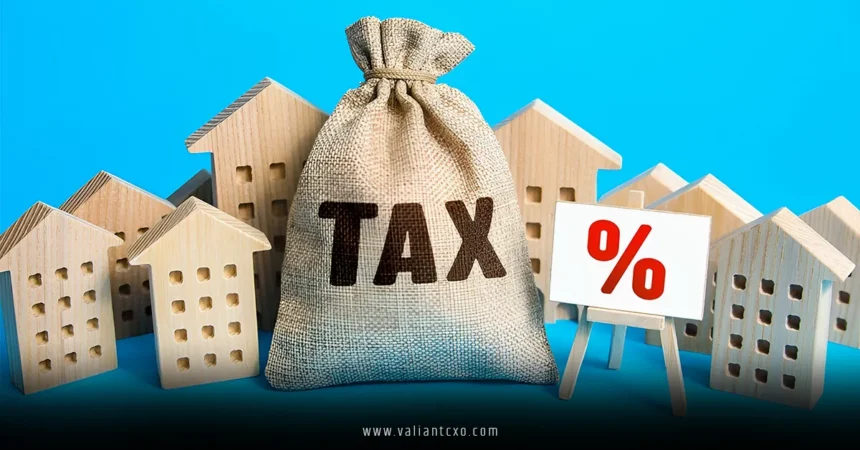Reeves stamp duty property tax is making waves in the UK housing market, and if you’re a homeowner, buyer, or just curious about what’s brewing in the world of property taxes, you’re in for a ride. Imagine you’re about to sell your home, and instead of the usual stamp duty headache, you’re hit with a new tax system that could change everything. Sounds intriguing, right? Chancellor Rachel Reeves is stirring the pot, exploring a potential overhaul that might replace stamp duty with a new proportional property tax. But what does this mean for you? Let’s dive into the nitty-gritty of Reeves stamp duty property tax, unpack its implications, and figure out whether it’s a stroke of genius or a recipe for chaos.
What Is Reeves Stamp Duty Property Tax All About?
Picture this: you’ve just sold your home for a tidy sum, but instead of the buyer footing the stamp duty bill, you, the seller, are now on the hook for a new tax. That’s the core idea behind Reeves stamp duty property tax. Reports suggest that Chancellor Reeves is considering a national property tax to replace stamp duty on owner-occupied homes, targeting properties valued over £500,000. Unlike the current stamp duty, which buyers pay based on the property’s purchase price, this new tax would be paid by sellers, with the amount tied to the property’s value at the time of sale. The rate? That’s still under wraps, but it’s expected to be set by the central government and collected by HM Revenue and Customs (HMRC).
Why the shift? Well, stamp duty has long been a sore spot. It’s like a pesky mosquito buzzing around the housing market, discouraging people from moving and clogging up the system. Experts argue it stifles economic dynamism, and even heavyweights like the International Monetary Fund (IMF) have called it one of Britain’s “most damaging taxes.” Reeves seems to agree, and her team is exploring Reeves stamp duty property tax as a way to streamline things, raise revenue, and maybe even give the housing market a much-needed jolt.
Why Replace Stamp Duty?
Let’s be real—nobody loves paying taxes, especially one as clunky as stamp duty. Currently, if you buy a home worth more than £125,000 (or £300,000 for first-time buyers), you’re slapped with a tax that scales up depending on the price. It’s a tiered system: 2% up to £250,000, 5% up to £925,000, and so on, all the way to 12% for properties over £1.5 million. Sounds complicated, right? It is. And it’s not just buyers who feel the pinch. The tax discourages people from moving, whether they’re upsizing for a growing family or downsizing for retirement. Reeves stamp duty property tax aims to flip the script by shifting the tax burden to sellers and simplifying the process.
The goal? Create a more predictable revenue stream for the government. Stamp duty receipts can be a rollercoaster, swinging wildly with the housing market—£11.6 billion last year alone, but that number ebbs and flows. A proportional tax, like the one proposed in Reeves stamp duty property tax, could smooth things out, affecting only about a fifth of property sales compared to the 60% currently hit by stamp duty. Plus, it’s being pitched as a way to target wealthier homeowners, which aligns with Labour’s push for wealth-based taxes without breaking their promise not to hike taxes on working people.
How Would Reeves Stamp Duty Property Tax Work?
So, how does this new tax play out in real life? Let’s say you’re selling a cozy £600,000 home in London. Under the proposed Reeves stamp duty property tax, you’d pay a tax based on that sale price, with the rate determined by the government. Early reports, inspired by a think tank called Onward, suggest a rate of around 0.54% for homes over £500,000, with a possible 0.278% bump for properties exceeding £1 million. For your £600,000 home, that’s roughly £3,240 in tax. Not chump change, but compared to the current stamp duty a buyer might pay (around £17,500 for the same property), it’s a different kind of hit.
The tax would only apply to owner-occupied homes, not second homes or investment properties, which would still fall under the existing stamp duty rules. And here’s the kicker: it’s designed to be a more stable source of revenue. Unlike stamp duty, which depends on how hot the housing market is, Reeves stamp duty property tax could provide a steady flow of cash to the Treasury, even when sales slow down. But don’t pop the champagne just yet—there are plenty of hurdles to clear before this becomes reality.
The Catch: Implementation Challenges
Here’s where things get tricky. Switching from stamp duty to Reeves stamp duty property tax isn’t like flipping a light switch. It’s more like rewiring an entire house while you’re still living in it. The Valuation Office Agency (VOA) would need time to gear up, and experts estimate that even simple changes, like tweaking council tax bands, could take over a year to implement. A full-blown tax overhaul? That’s a multi-year project, possibly requiring Labour to win a second term to see it through.
Then there’s the political tightrope. Property taxes are a hot potato—remember the poll tax riots under Margaret Thatcher? A new tax on homeowners, especially in pricey areas like London and the South East, could spark a backlash. Sellers might try to dodge the tax by listing their homes just below the £500,000 threshold, creating weird price gaps in the market. And what about families in high-cost areas like London, where even modest homes can easily top £500,000? Suddenly, Reeves stamp duty property tax starts to feel less like a progressive wealth tax and more like a burden on middle-class families.
The Bigger Picture: Council Tax and Local Funding
Hold onto your hats because Reeves stamp duty property tax isn’t just about stamp duty. It’s part of a broader plan to rethink how we tax property in the UK. The Treasury is also eyeing a potential overhaul of council tax, which hasn’t been updated since 1991. Yep, you read that right—your council tax bill is based on property values from over three decades ago. Talk about living in the past! Reeves and her team are exploring a local property tax to replace council tax, which could help prop up struggling local authorities. Many councils are teetering on the edge of bankruptcy, and a new system could be a lifeline.
But here’s the rub: replacing council tax is a massive undertaking. It’s not just about slapping new valuations on homes; it’s about figuring out how to fund local services without alienating voters. Reeves stamp duty property tax could be a stepping stone, testing the waters for a broader property tax reform. If it works, it might pave the way for a fairer, more modern system. If it flops? Well, let’s just say the Treasury might have to go back to the drawing board.
Who Wins and Who Loses?
Let’s break it down. Who’s cheering for Reeves stamp duty property tax, and who’s reaching for the pitchforks? First-time buyers might be popping the bubbly—shifting the tax to sellers could make buying a home more affordable, especially in a market where every penny counts. Younger families looking to upsize could also benefit, as they won’t face the hefty stamp duty bill on their dream home.
But sellers, especially those with pricier properties, might feel like they’ve drawn the short straw. If you’ve spent years building equity in a £700,000 home, only to face a new tax when you sell, that’s a bitter pill to swallow. And what about older homeowners looking to downsize? They might think twice about moving if it means a tax hit, which could keep the housing market stuck in neutral. Reeves stamp duty property tax is a balancing act, and the jury’s still out on whether it’ll tip the scales toward fairness or frustration.
The Economic Ripple Effects
Ever tossed a pebble into a pond and watched the ripples spread? That’s what Reeves stamp duty property tax could do to the UK economy. By shifting the tax burden, it might encourage more people to move, freeing up homes and boosting market fluidity. That’s good news for estate agents, movers, and anyone banking on a lively housing market. But there’s a flip side. If sellers start holding onto their homes to avoid the tax, we could see fewer properties on the market, driving up prices and making life tougher for buyers.
Then there’s the revenue angle. The government’s hoping Reeves stamp duty property tax will keep the coffers full, but if the housing market slows, those projections could take a hit. Plus, with local councils desperate for cash, any misstep in rolling out this tax could leave them high and dry. It’s a high-stakes gamble, and Reeves is betting she can pull it off without crashing the system.
What Do Experts Say?
The chatter around Reeves stamp duty property tax is heating up, and experts have plenty to say. The think tank Onward, which helped spark the idea, argues it’s a fairer way to tax property wealth. They point out that stamp duty punishes mobility, hitting people who need to move for work or family reasons. A seller-based tax, they say, could ease that burden and make the system more equitable. Groups like the Resolution Foundation agree, noting that property taxes in the UK are long overdue for a shake-up.
But not everyone’s sold. Some economists worry that Reeves stamp duty property tax could spook the housing market, especially in high-cost areas. Others question whether the government can pull off such a big change without tripping over its own feet. The IMF, while critical of stamp duty, hasn’t explicitly endorsed the new plan, and it’s unclear if Reeves’ team can navigate the logistical minefield of implementation. For more on the debate, check out Onward’s report on property tax reform or dive into the IMF’s take on UK taxation.
What’s Next for Reeves Stamp Duty Property Tax?
So, where do we go from here? The Treasury’s still crunching the numbers, and Reeves stamp duty property tax is far from a done deal. The government’s eyeing the Autumn Budget as a chance to lay out more details, but don’t expect a full rollout anytime soon. Between the Valuation Office Agency’s workload and the political risks, this could take years to get off the ground. In the meantime, homeowners and buyers are left in limbo, wondering how this will shake out.
If you’re thinking about selling, it might be worth keeping an eye on the news. A sudden shift to Reeves stamp duty property tax could change your calculations, especially if your home’s value is creeping toward that £500,000 mark. And if you’re a buyer? You might want to cross your fingers that this tax makes homes more affordable, but don’t hold your breath just yet.
How Can You Prepare?
Feeling a bit overwhelmed? Don’t worry—here’s how you can get ahead of the curve. If you’re planning to sell, start crunching the numbers now. Use online tools like HMRC’s stamp duty calculator to get a sense of the current system, and keep an eye on updates about Reeves stamp duty property tax. Talk to a financial advisor to map out your options, especially if you’re in a high-value property hotspot.
For buyers, this could be a golden opportunity. A shift to Reeves stamp duty property tax might mean lower upfront costs, so start saving for that deposit and get pre-approved for a mortgage. Either way, staying informed is your best bet. The housing market’s a wild ride, and Reeves stamp duty property tax is just one more twist in the road.
Conclusion: Is Reeves Stamp Duty Property Tax a Win for the UK?
Reeves stamp duty property tax is a bold move, no question about it. By shifting the tax from buyers to sellers, Chancellor Reeves is trying to shake up a housing market that’s been stuck in the mud for too long. It’s a chance to make buying a home more affordable, boost market fluidity, and create a steadier revenue stream for the government. But it’s not without risks—sellers might balk, the market could stutter, and the logistics are a nightmare. Whether this tax lives up to its promise depends on how well the government can navigate the challenges and sell the idea to a skeptical public. One thing’s for sure: Reeves stamp duty property tax has everyone talking, and it’s a debate worth following. So, what do you think—game-changer or gamble? Keep your eyes peeled and your wallet ready.
FAQs About Reeves Stamp Duty Property Tax
1. What exactly is Reeves stamp duty property tax?
Reeves stamp duty property tax is a proposed replacement for the current stamp duty system, where sellers of owner-occupied homes valued over £500,000 would pay a proportional tax based on the sale price, instead of buyers paying stamp duty.
2. How will Reeves stamp duty property tax affect first-time buyers?
First-time buyers could benefit from Reeves stamp duty property tax, as it shifts the tax burden to sellers, potentially lowering upfront costs for those entering the housing market.
3. Will Reeves stamp duty property tax apply to all properties?
No, the proposed Reeves stamp duty property tax would only apply to owner-occupied homes, not second homes or investment properties, which would still follow existing stamp duty rules.
4. When might Reeves stamp duty property tax be implemented?
While the Treasury is exploring Reeves stamp duty property tax, implementation could take years due to logistical challenges, with details possibly emerging in the Autumn Budget.
5. How can I prepare for Reeves stamp duty property tax as a homeowner?
Stay informed about updates, use tools like HMRC’s stamp duty calculator, and consult a financial advisor to understand how Reeves stamp duty property tax might impact your home sale.
Read More:valiantcxo.com


